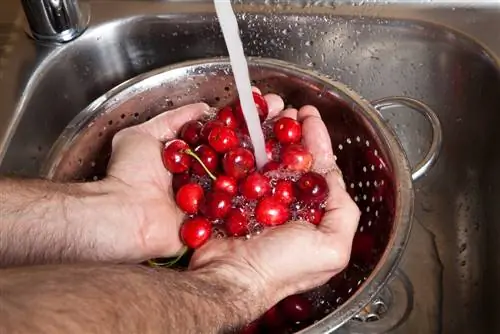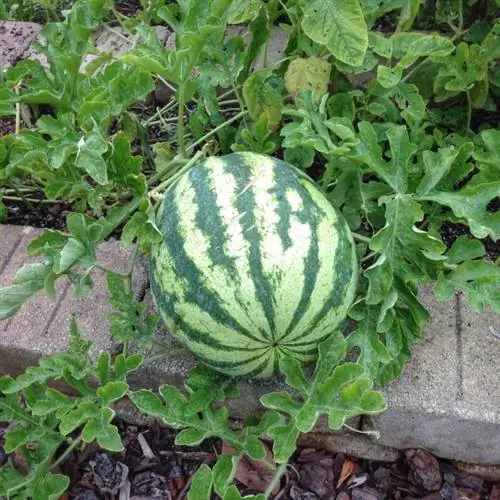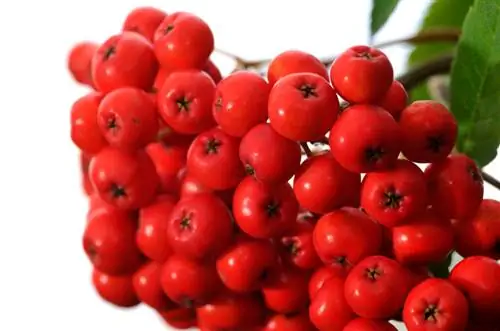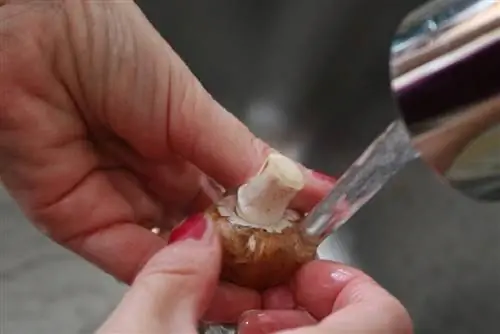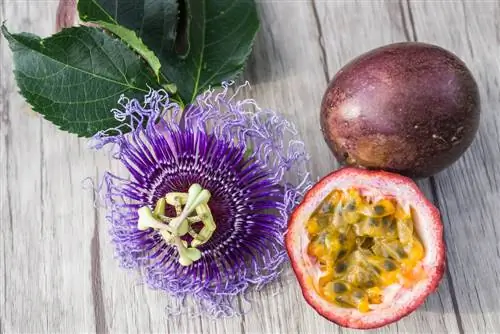- Author admin leonars@hobbygardeners.com.
- Public 2023-12-16 16:46.
- Last modified 2025-01-23 11:21.
In addition to apples, cherries and pears, delicious berries can also provide fresh fruit enjoyment from your own garden or from nature. Since there are various myths and untruths about how to properly wash berries, it's worth taking a quick look at the facts about carefree berry enjoyment.
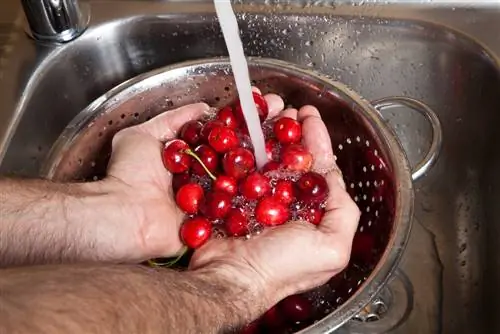
How should you wash and store berries properly?
When washing berries, the fruits should be placed in a fine-mesh kitchen sieve and left for approx. Immerse in cold water for 1 minute. If necessary, a little lemon juice or vinegar can be added to the water. In the refrigerator, the berries should be stored on kitchen paper and without a cover.
Wash berries at all or not?
Washing fully ripe berries such as raspberries and strawberries can dilute their taste, as the protective shell of these fruits is extremely thin and fruit juice can easily leak out. However, washing should only be avoided completely if the fruits are not picked in nature, such as wild blueberries, which could potentially pose a risk of infection with fox tapeworm. It may also be advisable to wash berries from your own garden before consumption if there may be residues of spray or fertilizer on the fruit. If this is not the case, the berries can also be enjoyed freshly harvested without washing beforehand. When harvesting, you should also make sure that muddy or already moldy specimens do not end up in the harvest basket. In this way, you can sometimes save the perfect berries from the need for cleaning before consumption or further processing.
The right order makes the difference
Basically, for almost all types of berries, the relatively sensitive fruits can only be stored for a very short time after harvest. Berries can be stored in the refrigerator for a maximum of a few days; when freezing, changes in the consistency of the fruit must be taken into account. If the currants, strawberries, raspberries or other berries are not really contaminated, they should first be placed unwashed in the refrigerator and only washed before consumption. Strawberries are initially stored with the stem attached, while currants can initially be stored as grapes as picked. Only after washing are the strawberries cleaned or the currants picked apart.
Wash berries properly and store in the refrigerator
To prevent the delicate fruits from becoming mushy, they should never be rinsed under a hard jet of water. It is better to place the berries in a fine-mesh kitchen sieve and lower it into a bowl filled with cold water. After gently swirling in the water for about a minute, the fruits can be lifted out and placed on kitchen paper to drain. If necessary, small amounts of lemon juice or vinegar can be added to the water as a cleaning agent and the procedure can be supplemented with a wash cycle with clear water. When storing the berries in the refrigerator, they should, if possible, be stored taking into account the following factors:
- Avoid pressure points: If possible, place fruits in a single layer on a flat plate
- Do not cover fruits: berries mold much more quickly in sealed containers
- Use kitchen paper to absorb moisture
- Always put berries in the fridge when they are well dried
Tip
In order to protect sensitive fruits such as raspberries and blackberries from contamination, it is advisable to tie up these plants using a trellis. The fruits can then be harvested much more conveniently and are optimally protected from contamination.

